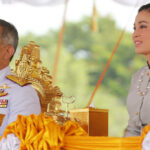The ASEAN (Association of Southeast Asian Nations) has found itself grappling with the political crisis in Myanmar, an issue that has tested the regional bloc’s unity and diplomatic mettle like no other. At the heart of this crisis is the junta that took control of Myanmar following a military coup in February 2021, causing an outcry both domestically and internationally. The military’s refusal to adhere to ASEAN’s five-point consensus plan to end violence and engage in dialogue has led to an impasse.
Challenges in Bridging Divisions
The challenge for ASEAN has been striking a balance between their core principle of non-interference in internal affairs and the urgency of the crisis at hand. Several countries, including the chair Indonesia, are attempting to engage the Myanmar junta, while others like Singapore deem such engagement premature. The junta, on the other hand, has been unwavering, dismissing ASEAN’s decisions and labeling opposing factions as terrorists.
The Diplomatic Tug of War
Despite ASEAN’s exclusion of the junta from high-level meetings, Thailand’s proposition for full re-engagement has stirred debate within the bloc, highlighting a divide in approach to the crisis. Indonesia, as the current chair, seems to bear the burden of unity, with efforts to initiate inclusive dialogue facing complications. The dilemma at hand is whether to stick to the principles of non-interference and consensus decision-making or adapt to a rapidly evolving geopolitical situation.
Also read: Threads App Surpasses 100M Users in Record Time, Challenges Twitter Dominance
Potential Outcomes and Implications
While there is a growing call for a new approach, the definitive direction of ASEAN’s approach remains uncertain. Its choices now will set the precedent for future cross-border crises. With other significant issues such as the South China Sea tensions and the US-China rivalry also on the agenda, ASEAN finds itself at a critical juncture. Its ability to effectively resolve these crises will have profound implications for regional stability and international diplomacy.
















